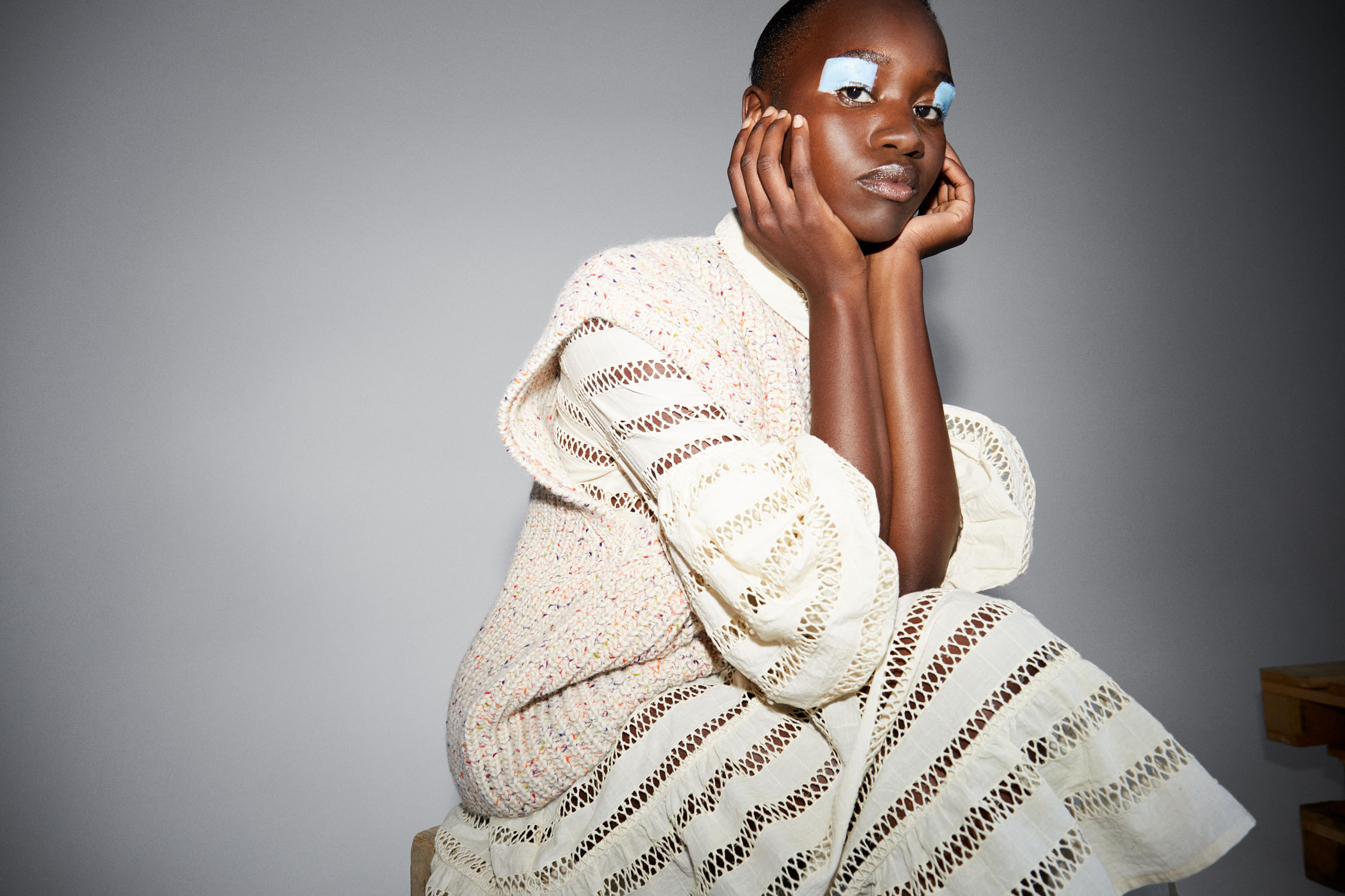
Fashion /
With Cecilie Thorsmark at the helm and a Sustainability Action Plan in place, Copenhagen Fashion Week presents two things: the most exciting Nordic talent and opportunities to drive real, positive change. Here, Naja Munthe shares more about the search for better fibres, the meaningful projects she holds dear to her heart and how she’s developing a more responsible business by the day.
For me, it’s eco-friendly production and packaging, emission reduced production, organic materials, waste reduction and social responsibility.
The natural world has captured my interest for almost as long as I can remember. As a child, I asked my parents countless questions about all parts of the world, whether on social, scientific, cultural or moral levels.
It’s a good place to start!
If cotton is to be sold as organic, it requires a third-party certification from independent, accredited certification agencies. Organic cotton is generally grown as part of a production system that sustains the health of soils, ecosystems, and people. It’s also grown from non-genetically modified (GMO) seeds and without synthetic chemicals, such as fertilisers or pesticides. The goal? Less soil and water contamination and fewer health hazards for farmers, manufacturers, and consumers. Increase soil fertility and biodiversity.
Capturing and reusing waste, the recycled fibres are produced in a “closed-loop” process. They’re made from eucalyptus and FSC certified leftovers from the timber industry – the fibre yield per acre from the trees used in the Lenzing fibres is up to ten times higher than cotton.
The fashion industry is a sector with a high environmental impact; it involves a very long and complicated supply chain, which is associated with large consumption of water and energy, use of chemical substances, water and air pollution, waste production and finally microplastic generation.
I love them all, really. But PLAN International is in my heart. Back in 2013, we made a jacket for the benefit of empowering Indian seamstresses to become self-sufficient and an integral part of their work organisation – with health checks, pensions, insurance etc.
There is no doubt that the COVID-19 pandemic has largely affected the fashion industry, from the people it employs to the waste it has created. However, this crisis could also present an opportunity to rethink the industry. At MUNTHE, this unique set of circumstances can hopefully bring about a positive change and allow us to rethink our values – especially the CSR strategy, which is more important than ever.
So excited! There will be something, but nothing resembling fashion week as we knew it. Until COVID-19 sent most of the world into freefall, fashion brands would pay a lot of attention to throw ten-minute runway shows to advertise clothes that would be available six months after, capturing an elusive sense of relevance. At this Copenhagen Fashion Week, MUNTHE again takes the opportunity to do our own thing and focus on the things we are good at – a new kind of lockdown creativity.
Usually, there can be around 300 people for a fashion show. Now there is a new chance – due to the circumstances of this Fashion Week – to do something extraordinary and try something new. MUNTHE, therefore, decided quite quickly that we wanted to make a film, which should be supported by a picture universe.
The AW21 collection it’s all about diversity and originality.
Shop less and find your style instead of following the trends. Do your brand research to shop more sustainably and donate unwanted clothes.
First, do the research and learn about fabric production and different textiles. Choose brands that use recycled fibres and opt for more sustainable options like organic cotton.
Be curious, ask questions and start looking at your clothes differently. Instead of only asking yourself; Does this piece look great on me? Rather answer some of these questions: Who made these clothes? What materials were used? Where did they come from? Where were they made? What’s it like to work there? Etc. Being interested in the answers to these kinds of questions is the best first step towards changing the story for the people who make our clothes.
It will be sustainable
No matter what the world looks like when we get out on the other side, we need to consume less. The COVID-19 crisis will result in a permanent change to our shopping behaviours and ways of conducting business. MUNTHE will upgrade our supply chain and fulfillments – and strengthen our technological platforms.
Sustainable Collection Munthe
@muntheofficial
Find out more about MUNTHE’s CSR strategy here.